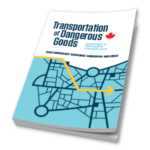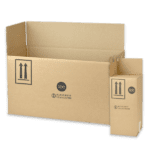
The following is a brief overview of what you need to know regarding the new Canadian government’s prohibition on single-use plastics that was published on June 20th, 2022, in the Canadian Gazette II.
As of December 2022, with some exceptions, the ban will target the manufacture, import, and use of the following single-use plastics:
- Retail checkout bags;
- cutlery;
- foodservice containing hard to recycle plastics;
- ring carriers;
- stir sticks and straws.
These new regulations will begin to come into effect as of December 2022 to allow current manufacturers and retailers to deplete existing stocks and to transition to a more sustainable alternative. To better assist in understanding important timelines the Canadian government has released the following table.
| Plastic item | Manufacture and import for sale in Canada | Sale | Manufacture, import and sale for export |
| Checkout bags, cutlery, straws foodservice ware, stir sticks, straws | December 20, 2022 | December 20, 2023 | December 20, 2025 |
| Ring carriers | June 20, 2023 | June 20, 2024 | December 20, 2025 |
| Flexible straws packaged with beverage containers | N/A | June 20, 2024 | December 20, 2025 |
(Table provided by environment-climate-change Canada)
Now there are some exceptions to this regulation and here are some examples:
- Bags intended to hold organic waste meant for composting;
- Recycling, and garbage bags;
- Produce bags used for fruit, vegetables, or loose bulk food items;
- Bags for meat, poultry, or fish packaging;
- Bags to protect prepared foods or bakery goods;
- Bags to protect newspapers/flyers;
- Laundered or dry-cleaning protective bags;
- Bags to protect used tires taken off vehicles.
Plastic cutlery
Any plastic cutlery that is not made from polystyrene or polyethylene is considered reusable. The following types of cutlery may continue to be manufactured, imported, and sold, provided they meet the performance criteria below:
- Reusable cutlery made of thick plastic, other than polystyrene or polyethylene
- Reusable silicone cutlery used for infant feeding
- Reusable plastic utensils used for cooking or preparing food
Plastic foodservice that are exempted from the regulations are:
- Cups or containers used by hospitals and care institutions
- Paper and fibre-based coffee cups and food containers with a plastic lining, so long as it does not have any expanded polystyrene, extruded polystyrene foam, PVC, carbon black, or any oxo-degradable plastics.
A few more examples can be found in this article: Single-use Plastics Prohibition Regulations – Guidance for selecting alternatives
December 2022 will approach faster than we know it and we need to be ready to adapt and pivot with these new ways. Keep informed and make sure your company is ready. Contact ICC for more information on these new regulations.
Stay up to date and sign up for our newsletter!
We have all the products, services and training you need to ensure your staff is properly trained and informed.
 Environmentally Hazardous Substance Labels |
 Canadian TDG Publications |
 4G UN Combination Boxes |






 ICC USA
ICC USA ICC Canada
ICC Canada